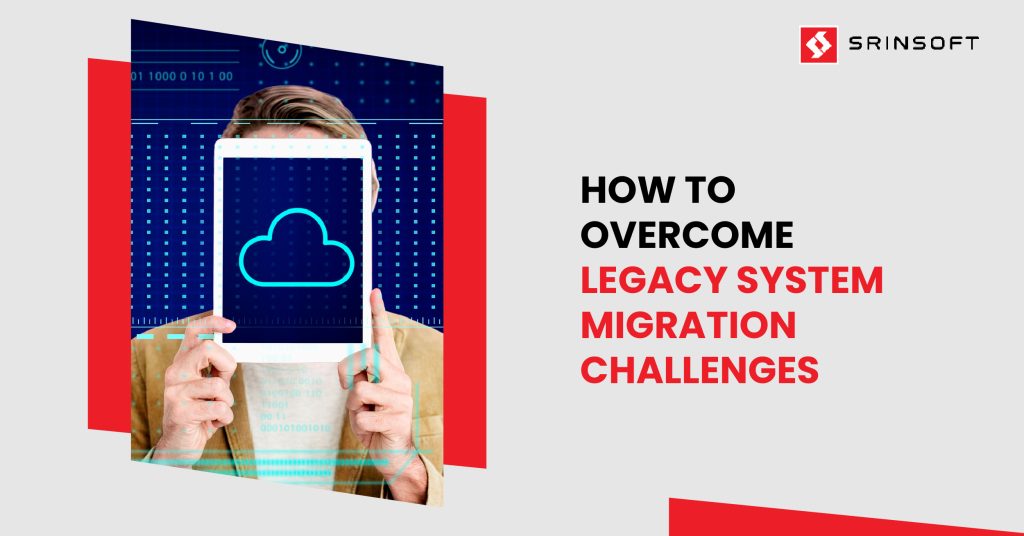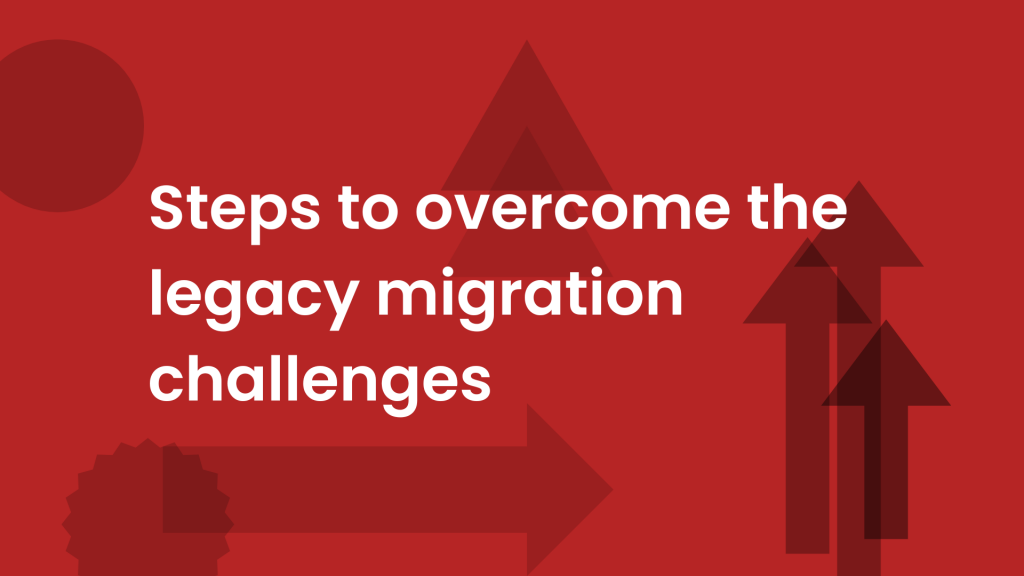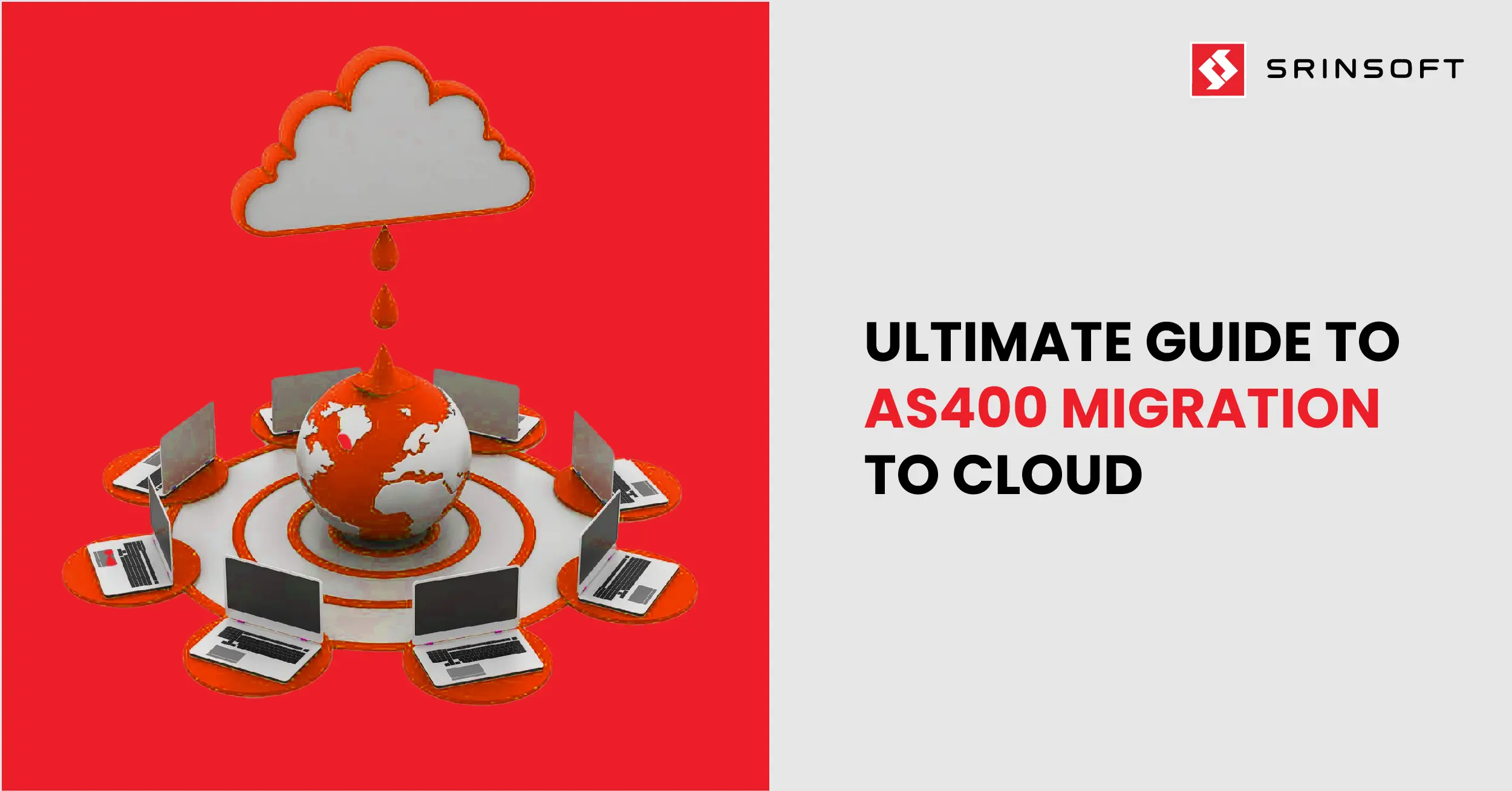
What is a Legacy system?
A Legacy system refers to aging computer software or hardware that remains in operation, yet its outdated technology hinders its ability to seamlessly interact with more modern systems.
Legacy systems, although once innovative and reliable, can become a hindrance in today’s rapidly evolving technological landscape.
With advancements in technology and the increasing demands of businesses, migrating from legacy systems to modern platforms has become a necessity.
However, this process is not without its challenges.
In this blog, we will explore the key challenges organizations face when migrating from legacy systems, provide examples and statistics to support our points and offer insights on how to overcome these obstacles successfully.
The Importance of Legacy System Migration
Legacy system migration is crucial for organizations looking to leverage modern technologies, enhance operational efficiency, and improve customer experiences.
By migrating to modern platforms, businesses can embrace digital transformation, leverage cloud computing, harness the power of big data and analytics, and streamline their processes.
Legacy systems, on the other hand, may suffer from limitations, lack of support, and security vulnerabilities, hindering growth and innovation.
Legacy System Migration Challenges
Compatibility and Integration Issues
One of the primary challenges of migrating from legacy systems is ensuring compatibility and seamless integration with the new environment.
Legacy systems often use outdated programming languages, data structures, and architectures, making it difficult to integrate with modern systems.
This challenge can result in data inconsistencies, process inefficiencies, and potential system failures.
For instance, if there are compatibility issues, data from the legacy system could not be transferred accurately, leading to production delays and order fulfillment errors.
Data Loss and Security Risks
During the migration process, there is a risk of data loss or compromise, which can have severe consequences for businesses.
Data integrity and security are of utmost importance when migrating sensitive information from legacy systems to modern platforms.
Without proper data protection measures and secure migration processes, organizations may face data breaches, regulatory compliance issues, and reputational damage.
According to a survey by Ponemon Institute, 43% of companies experienced a data breach during or after a migration project.
Business Disruption and Downtime
Migrating from a legacy system to a new platform often involves a significant disruption to normal business operations.
Downtime can result in lost productivity, revenue loss, and dissatisfied customers.
Minimizing business disruption and ensuring a smooth transition is crucial for a successful migration process.
For example, Inadequate planning and testing during migration can cause an extended system outage, leading to customer frustration and financial losses.
Lack of Internal Expertise
According to a report by Deloitte, 60% of IT executives consider a lack of skilled resources as a major challenge in legacy system modernization.
Legacy system migration requires specialized knowledge and expertise in both legacy systems and modern technologies.
Many organizations lack in-house experts who possess the necessary skills to successfully navigate the migration process. This knowledge gap can lead to delays, errors, and suboptimal outcomes.
Cost and Resource Constraints
Migrating from legacy systems can be a resource-intensive endeavor, requiring financial investment, skilled personnel, and time.
Organizations often face budgetary constraints and struggle to allocate the necessary resources for a smooth migration.
Without proper planning and resource allocation, projects can exceed budgets, resulting in financial strain and project delays.
Overcoming Legacy System Migration Challenges

Successful migration from legacy systems requires a well-thought-out strategy and meticulous execution.
Here are some key steps to overcome the challenges associated with legacy system migration:
Comprehensive Planning and Analysis
Thoroughly assess the current legacy systems, identify dependencies, and define migration goals. Develop a detailed migration plan, including timelines, resource requirements, and risk mitigation strategies.
Robust Data Migration Strategies
Implement robust data migration strategies to ensure the accurate and secure transfer of data from legacy systems to modern platforms. Conduct extensive data validation and quality checks to minimize the risk of data loss or corruption.
Ensuring Data Security and Compliance
Prioritize data security during the migration process. Implement encryption, access controls, and data anonymization techniques to protect sensitive information. Comply with relevant data protection regulations, such as GDPR or HIPAA.
Collaborating with Experienced Migration Partners
Engage with experienced migration partners who possess the necessary expertise in legacy system migration. Leverage their knowledge and best practices to streamline the migration process, reduce risks, and ensure a successful transition.
Budgeting and Resource Allocation for Legacy system migration
Allocate adequate resources, both financial and personnel, for the migration project. Conduct a thorough cost-benefit analysis to ensure the project remains within budget. Consider partnering with a managed IT services provider to optimize resource allocation and control costs.
Conclusion
Legacy systems, which have served organizations faithfully for years, often reach a point where they no longer meet the evolving needs of the business.
Migrating from these legacy systems to modern platforms can unlock new opportunities, improve efficiency, and enable organizations to stay competitive in a rapidly changing marketplace.
However, the journey from legacy to modernization is not without its challenges.
Legacy system migration is a complex undertaking that requires careful planning, expertise, and a methodical approach.
By understanding and addressing the challenges associated with legacy system migration, organizations can successfully navigate the journey toward modernization.
With a comprehensive strategy, robust data migration processes, a focus on data security, collaboration with experienced migration partners, and proper resource allocation, businesses can overcome obstacles and unlock the full potential of modern platforms.
If you need assistance with legacy system migration and want to ensure a smooth and successful transition, contact our team of experts today. Let us help you navigate the challenges and unlock the benefits of modernization.





